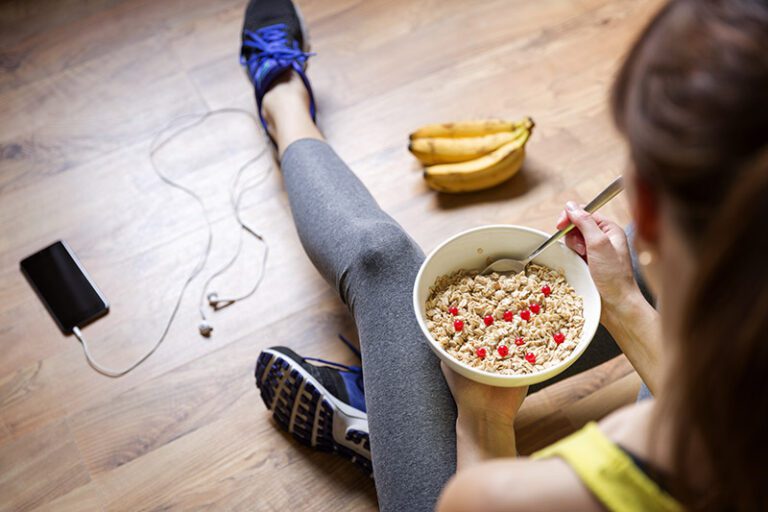How to boost your energy levels

How often have you had to face a pile of work (whether it be professional tasks or school assignments), but with an energy meter pegged at zero after a long day? We have all been there – unfortunately, our increasingly hectic schedules make this more and more common. There may be little that we can do about the amount of work we have in front of us, but there are always ways to increase our energy levels so that we can better achieve our tasks.
The Harvard Medical School (https://www.health.harvard.edu/energy-and-fatigue/9-tips-to-boost-your-e…) offers us nine inexpensive or cost-free ways to boost our energy levels in the right direction:
Keep stress under control
Easier said than done, but excessive stress or emotional fatigue will drain your energy. “Keeping it all inside” is unhelpful, so talking out issues with a friend can help lighten the burden. If you have never tried yoga, meditation or even a distracting hobby, these might be worth exploring. It certainly can’t hurt!
Avoid overwork
Also easier said than done, but let’s be honest…how many of the tasks we take on are really essential, at least according to the artificial deadlines we set for ourselves? Stick with the “must do” activities, and skip the non-essentials. Even though it is difficult to do sometimes, ask for help at key junctures. After all, it’s potentially your health and sanity that are at stake.
Get some exercise
We can all come up with a hundred excuses as to why we can’t go the gym, or even take a walk. My work is “just too important” or “can’t wait…” Nonsense! Taking 15 minutes a day for a quick workout or a brisk walk can do wonders in reducing your stress levels and give you a nice pick-me-up. Come on now… fifteen minutes to work out will not mean the end of your career or cause you to fail a course.
Don’t smoke
This should be obvious by now, but there are still people who can’t quite comprehend that smoking is really not helpful. The negative outcomes associated with health, brain activity and energy levels are well-documented. Also, don’t be fooled by the latest trends in e-cigarettes. Safer? Possibly, but it is certain that nothing good comes from smoking in any form.
Don’t sleep too much
Some people think they are sleep-deprived (and they may be right), but many could be sleeping too much. Too much sleep makes you lethargic and less attentive. Try to avoid naps during the day. The important point is to sleep enough (not more than 7 hours?), but restfully. Wakefulness during the night can be resolved by scaling back the amount of sleep you think you need, then taking the measure of your sleep quality. Quality over quantity should be your objective!
Eat properly
Again, easier said than done, considering our hectic schedules… However, more frequent but lighter meals can be helpful in avoiding the bloated or lethargic period that can follow three large meals per day, and can help to keep your energy levels constant and balanced. Stay away from fats, in favor of vegetables, healthful oils such as olive oil, and nuts.
Steady on the caffeine
Caffeine can help you stay alert, but too much can have the opposite effect. Some people find that significant consumption of tea or coffee (or cola drinks and chocolate!) after mid-afternoon can be disruptive of a good night’s sleep (which is important!).
Limit alcohol
Unsurprisingly, avoiding a lunchtime beer can help you to avoid the afternoon drowsiness that often accompanies the consumption of alcohol. Alcohol is a sedative, so if you like a drink, hold off on enjoying your favorite libation until you are free to unwind.
Drink more water
If you are even minimally dehydrated, it can have a negative effect on your energy levels. Fatigue accompanies dehydration, and water is the most effective source of replenishment for all but the most physically demanding tasks. No need for expensive sports drinks or electrolyte-laden swill! Water will do it for you.
The above tips do not demand a lot of money or time, and can be put into practice with only minimal effort. There are certainly other ways to increase your energy levels so you can be a more effective professional or student, but these nine points – as recommended by The Harvard Medical School – are a good start!
Related Articles
UNYP Chronicle Newsletter
The e-mail address you provide will be used only to send you the newsletter. Your privacy is important to us.
For more information download our UNYP Brochure.

Contacts
University of New York in Prague
Londýnská 41, 120 00 Praha
ID no: 25676598
Phone:
+420 224 221 261
![]() Skype
Skype
Email: unyp@unyp.cz







